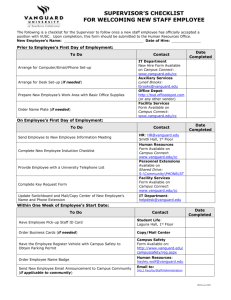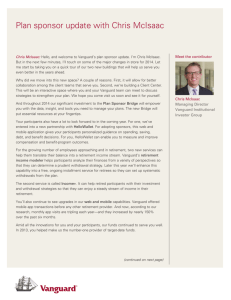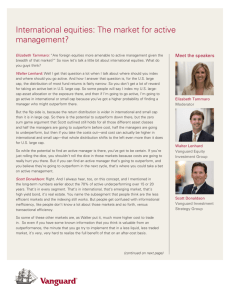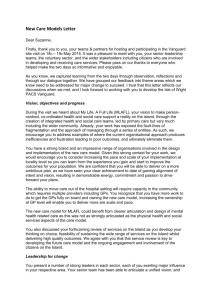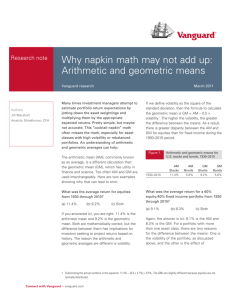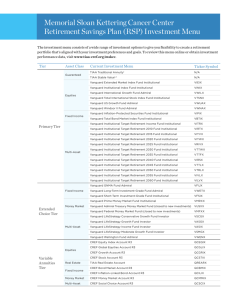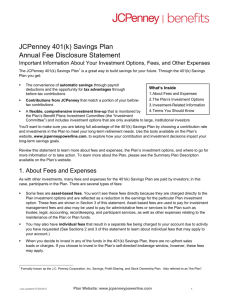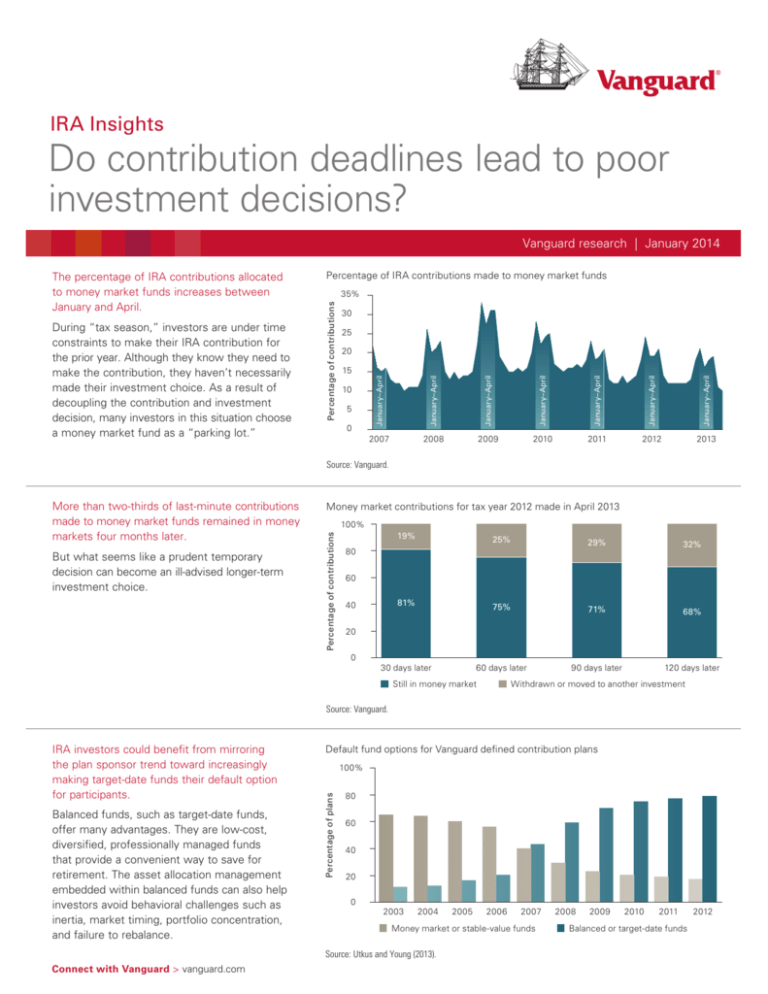
IRA Insights
Do contribution deadlines lead to poor
investment decisions?
IRA insights
35%
30
25
January–April
0
January–April
5
January–April
10
January–April
15
January–April
20
January–April
During “tax season,” investors are under time
constraints to make their IRA contribution for
the prior year. Although they know they need to
make the contribution, they haven’t necessarily
made their investment choice. As a result of
decoupling the contribution and investment
decision, many investors in this situation choose
a money market fund as a “parking lot.”
Percentage of IRA contributions made to money market funds
January–April
The percentage of IRA contributions allocated
to money market funds increases between
January and April.
Vanguard research | January 2014
Percentage of contributions
2007
2008
2009
2010
2011
2012
2013
Source: Vanguard.
But what seems like a prudent temporary
decision can become an ill-advised longer-term
investment choice.
Money market contributions for tax year 2012 made in April 2013
100%
Percentage of contributions
More than two-thirds of last-minute contributions
made to money market funds remained in money
markets four months later.
19%
25%
29%
32%
81%
75%
71%
68%
30 days later
60 days later
90 days later
120 days later
80
60
40
20
0
Still in money market
Withdrawn or moved to another investment
Source: Vanguard.
Balanced funds, such as target-date funds,
offer many advantages. They are low-cost,
diversified, professionally managed funds
that provide a convenient way to save for
retirement. The asset allocation management
embedded within balanced funds can also help
investors avoid behavioral challenges such as
inertia, market timing, portfolio concentration,
and failure to rebalance.
Default fund options for Vanguard defined contribution plans
100%
Percentage of plans
IRA investors could benefit from mirroring
the plan sponsor trend toward increasingly
making target-date funds their default option
for participants.
80
60
40
20
0
2003
2004
Source: Utkus and Young (2013).
Connect with Vanguard >
vanguard.com
2005
2006
2007
Money market or stable-value funds
2008
2009
2010
2011
Balanced or target-date funds
2012
Reference
Utkus, Stephen P., and Jean A. Young, 2013. How America
Saves 2013: A Report on Vanguard 2012 Defined Contribution
Plan Data. Valley Forge, Pa.: The Vanguard Group.
Connect with Vanguard® > vanguard.com > research@vanguard.com
Vanguard research authors
Stephen M. Weber, CFP ®
Maria A. Bruno, CFP ®
The authors would like to acknowledge John Rykaczewski in Vanguard’s Client Insight group
for providing the IRA contribution data used in this analysis.
Investments in Target Retirement Funds are subject to the risks of their underlying funds.
The year in the Fund name refers to the approximate year (the target date) when an
investor in the Fund would retire and leave the work force. The Fund will gradually shift
its emphasis from more aggressive investments to more conservative ones based on its
target date. An investment in the Target Retirement Fund is not guaranteed at any time,
including on or after the target date.
An investment in a money market fund is not insured or guaranteed by the Federal Deposit
Insurance Corporation or any other government agency. Although a money market fund seeks
to preserve the value of your investment at $1 per share, it is possible to lose money by
investing in such a fund.
Vanguard Research
For more information about Vanguard funds, visit vanguard.com, or call 800-662-2739,
to obtain a prospectus. Investment objectives, risks, charges, expenses, and other
important information about a fund are contained in the prospectus; read and consider
it carefully before investing.
© 2014 The Vanguard Group, Inc.
All rights reserved. Vanguard
Marketing Corporation, Distributor.
P.O. Box 2600
Valley Forge, PA 19482-2600
ISGIRA1 012014


